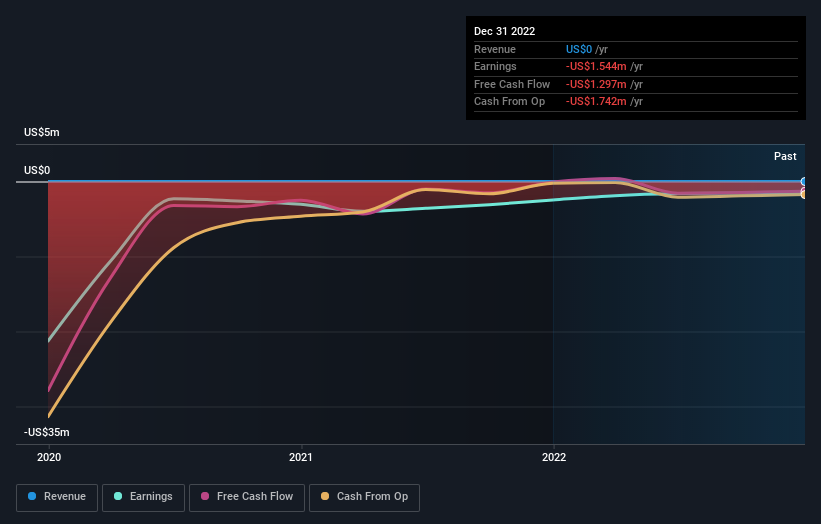Retail investors account for 38% of Merrimack Pharmaceuticals, Inc.'s (NASDAQ:MACK) ownership, while hedge funds account for 33%
Key Insights
Significant control over Merrimack Pharmaceuticals by retail investors implies that the general public has more power to influence management and governance-related decisions
A total of 9 investors have a majority stake in the company with 51% ownership
A look at the shareholders of Merrimack Pharmaceuticals, Inc. (NASDAQ:MACK) can tell us which group is most powerful. We can see that retail investors own the lion's share in the company with 38% ownership. In other words, the group stands to gain the most (or lose the most) from their investment into the company.
Meanwhile, hedge funds make up 33% of the company’s shareholders.
Let's delve deeper into each type of owner of Merrimack Pharmaceuticals, beginning with the chart below.
View our latest analysis for Merrimack Pharmaceuticals
What Does The Institutional Ownership Tell Us About Merrimack Pharmaceuticals?
Institutional investors commonly compare their own returns to the returns of a commonly followed index. So they generally do consider buying larger companies that are included in the relevant benchmark index.
As you can see, institutional investors have a fair amount of stake in Merrimack Pharmaceuticals. This can indicate that the company has a certain degree of credibility in the investment community. However, it is best to be wary of relying on the supposed validation that comes with institutional investors. They too, get it wrong sometimes. If multiple institutions change their view on a stock at the same time, you could see the share price drop fast. It's therefore worth looking at Merrimack Pharmaceuticals' earnings history below. Of course, the future is what really matters.
It would appear that 33% of Merrimack Pharmaceuticals shares are controlled by hedge funds. That's interesting, because hedge funds can be quite active and activist. Many look for medium term catalysts that will drive the share price higher. Newtyn Management, LLC is currently the largest shareholder, with 13% of shares outstanding. Meanwhile, the second and third largest shareholders, hold 12% and 7.1%, of the shares outstanding, respectively. Additionally, the company's CEO Gary Crocker directly holds 0.9% of the total shares outstanding.
We did some more digging and found that 9 of the top shareholders account for roughly 51% of the register, implying that along with larger shareholders, there are a few smaller shareholders, thereby balancing out each others interests somewhat.
While it makes sense to study institutional ownership data for a company, it also makes sense to study analyst sentiments to know which way the wind is blowing. As far as we can tell there isn't analyst coverage of the company, so it is probably flying under the radar.
Insider Ownership Of Merrimack Pharmaceuticals
The definition of an insider can differ slightly between different countries, but members of the board of directors always count. The company management answer to the board and the latter should represent the interests of shareholders. Notably, sometimes top-level managers are on the board themselves.
Most consider insider ownership a positive because it can indicate the board is well aligned with other shareholders. However, on some occasions too much power is concentrated within this group.
Our most recent data indicates that insiders own some shares in Merrimack Pharmaceuticals, Inc.. In their own names, insiders own US$2.2m worth of stock in the US$180m company. Some would say this shows alignment of interests between shareholders and the board, though we generally prefer to see bigger insider holdings. But it might be worth checking if those insiders have been selling.
General Public Ownership
With a 38% ownership, the general public, mostly comprising of individual investors, have some degree of sway over Merrimack Pharmaceuticals. While this group can't necessarily call the shots, it can certainly have a real influence on how the company is run.
Next Steps:
While it is well worth considering the different groups that own a company, there are other factors that are even more important. Case in point: We've spotted 2 warning signs for Merrimack Pharmaceuticals you should be aware of, and 1 of them is significant.
Of course this may not be the best stock to buy. So take a peek at this free free list of interesting companies.
NB: Figures in this article are calculated using data from the last twelve months, which refer to the 12-month period ending on the last date of the month the financial statement is dated. This may not be consistent with full year annual report figures.
Have feedback on this article? Concerned about the content? Get in touch with us directly. Alternatively, email editorial-team (at) simplywallst.com.
This article by Simply Wall St is general in nature. We provide commentary based on historical data and analyst forecasts only using an unbiased methodology and our articles are not intended to be financial advice. It does not constitute a recommendation to buy or sell any stock, and does not take account of your objectives, or your financial situation. We aim to bring you long-term focused analysis driven by fundamental data. Note that our analysis may not factor in the latest price-sensitive company announcements or qualitative material. Simply Wall St has no position in any stocks mentioned.
Join A Paid User Research Session
You’ll receive a US$30 Amazon Gift card for 1 hour of your time while helping us build better investing tools for the individual investors like yourself. Sign up here


